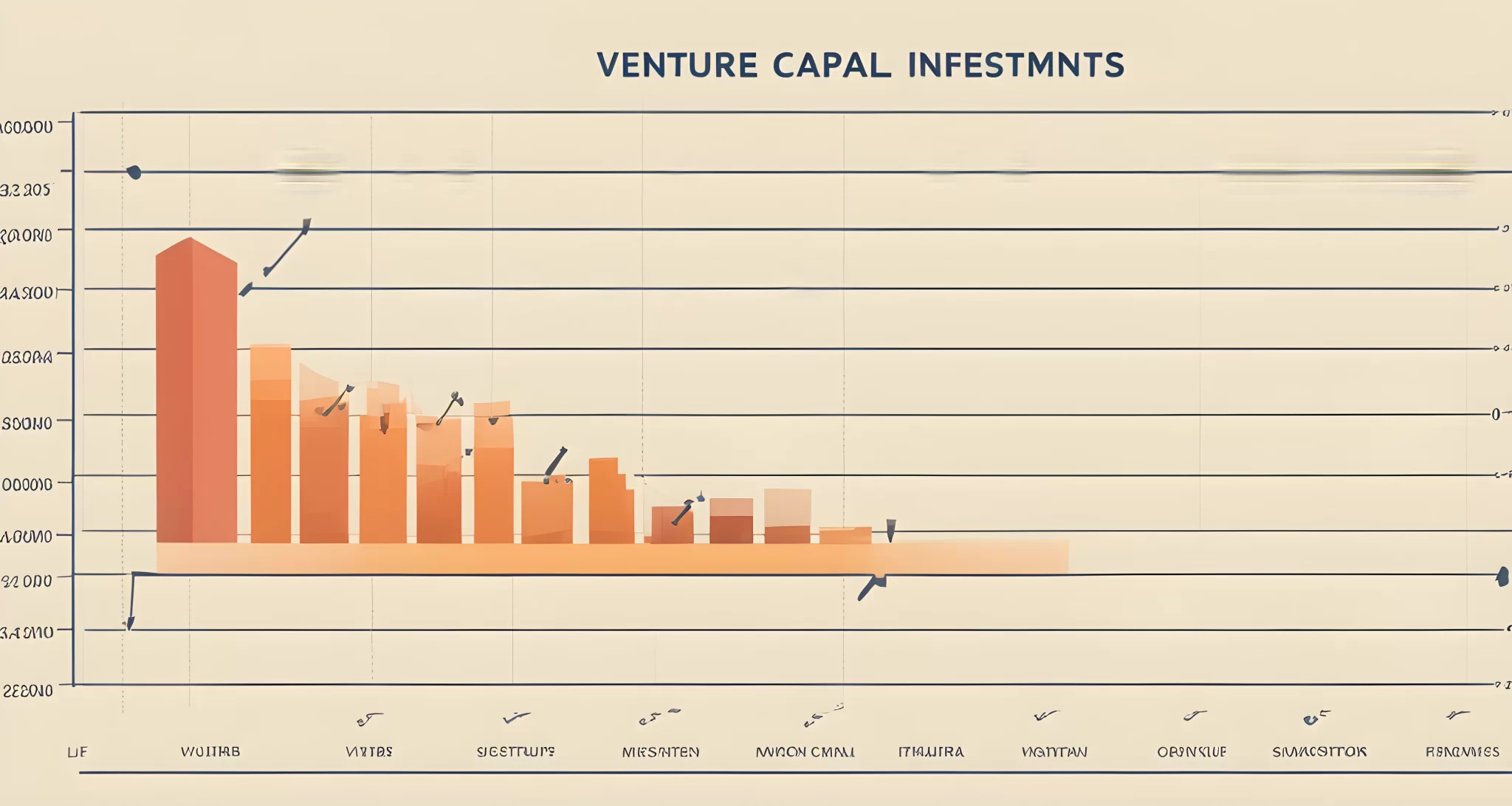Market Risk
Startups face significant market risk due to the dynamic nature of the markets they operate in. Trends can change rapidly, and what may be innovative today could become obsolete tomorrow. This is often due to changing consumer preferences or technological advancements. As highlighted in the article Venture funding challenges, it is crucial for investors to thoroughly assess market trends and the potential for startups to adapt.
Market risk can manifest in various ways for startups. They may face challenges in predicting and responding to shifts in consumer demand, which could impact the success of their products or services. Additionally, technological advancements can quickly render a startup’s offerings outdated, especially in fast-paced industries such as technology and consumer electronics.
Investors must carefully evaluate a startup’s ability to navigate market risk by assessing its understanding of market trends, competitive landscape, and responsiveness to changes. Startups that demonstrate agility and a proactive approach to evolving market conditions are better positioned to mitigate market risk.
Moreover, startups must have a clear strategy for staying ahead of market trends and adapting their products or services accordingly. This may involve investing in research and development, maintaining a flexible business model, or leveraging partnerships with other industry players.
In conclusion, market risk is a significant consideration for venture capital investments. Investors need to closely examine a startup’s potential to navigate dynamic market conditions and adapt to changing trends. By thoroughly assessing a startup’s understanding of market dynamics and its ability to respond effectively, investors can make more informed decisions that mitigate the impact of market risk on their investment portfolio.

Execution Risk
Even the best ideas can falter if they’re not executed properly. This is why when considering venture capital investments, it’s crucial to assess the execution risk associated with the startup. Entrepreneurs need to demonstrate their ability to translate their vision into action, manage resources effectively, and adapt to unforeseen challenges. Investors need to evaluate the startup’s team and their track record to gauge their execution capabilities.
When evaluating execution risk, investors should consider the following factors:
-
Management Team: The experience and track record of the management team play a critical role in mitigating execution risk. A strong team with a proven ability to execute can significantly reduce the chances of failure.
-
Operational Efficiency: How well does the startup operate? Are they able to streamline processes and maximize resources? Investors should look for startups that demonstrate operational efficiency and a clear plan for scaling their operations.
-
Adaptability: Startups are often faced with unforeseen challenges and market shifts. The ability to adapt and pivot when necessary is crucial for success. Investors should assess how well the startup can navigate changes in the market landscape.
-
Resource Management: Startups often operate with limited resources, especially in the early stages. It’s important for investors to evaluate how effectively the startup manages its resources and allocates capital towards growth opportunities.
Navigating execution risk is a key aspect of venture capital investments. By thoroughly assessing the abilities of the startup’s team and their track record, investors can make more informed decisions about where to allocate their capital.
For more information on venture capital investments, check out our Ultimate Guide to Venture Capital Deals.

Financial Risk
Startups can struggle with cash flow, relying on investor funding to sustain operations until they become profitable. This financial instability can lead to burnout if not managed carefully. Investors need to analyze the startup’s financial projections, spending patterns, and fundraising strategies to help gauge their long-term viability.
When considering venture capital investments, it’s essential to understand the financial risks involved. The Venture Capital Risk Management article discusses the challenges startups face with cash flow and the reliance on investor funding. This source also emphasizes the importance of analyzing a startup’s financial projections, spending patterns, and fundraising strategies before making investment decisions.
In the world of venture capital, financial risk is a significant consideration. Startups may experience periods of financial instability as they work towards profitability. It’s crucial for investors to thoroughly assess a startup’s financial situation before deciding to invest. By doing so, they can better understand the potential for burnout and financial struggles that startups may face.
Additionally, understanding a startup’s financial risk can help investors make informed decisions about their long-term viability. By carefully analyzing a startup’s financial projections and spending patterns, investors can gain insight into how well-equipped the startup is to weather financial challenges and sustain operations until they become profitable.
In summary, financial risk is a critical factor in venture capital investments. Startups often rely on investor funding to sustain operations, and this financial instability can lead to burnout if not managed carefully. By thoroughly analyzing a startup’s financial situation and projections, investors can better assess their long-term viability and make informed investment decisions.

Competition
In today’s globalized world, startups can face competition not just from local players but also from international companies entering the same space. This increased competition can pose a significant risk to venture capital investments. With the influx of international competitors, startups may struggle to differentiate themselves in a crowded market. As a result, they may find it challenging to attract and retain customers, ultimately impacting their revenue and growth potential.
Furthermore, the entry of well-established international companies can also lead to pricing pressures, making it difficult for startups to compete on price alone. This could potentially erode their profit margins and hinder their ability to scale and expand their business.
To mitigate the risk of competition, startups need to focus on building a strong and unique value proposition that sets them apart from their competitors. This may involve leveraging their innovative technology, providing exceptional customer service, or developing a niche market segment that larger companies have overlooked.
Additionally, startups should also keep a close eye on market trends and emerging technologies to stay ahead of the competition. By continuously innovating and adapting to changing market dynamics, startups can position themselves as leaders in their industry and create a sustainable competitive advantage.
In conclusion, while competition presents a significant risk to venture capital investments, startups can navigate this challenge by focusing on differentiation, innovation, and agility. By doing so, they can not only survive but thrive in an increasingly competitive landscape.
For more insights on the challenges that startups face in today’s competitive environment, check out Challenges Startups Face for valuable information on addressing funding challenges for startup success.

Summary
Venture capital investments are an essential part of start-up planning and growth Startup planning and capital. However, navigating the risks associated with these investments is crucial for success. The various risks involved in venture capital investments can be broadly categorized into market risk, execution risk, financial risk, competition, regulatory and legal risks, and illiquidity.
Market risk involves the uncertainty of the market demand for a product or service. Start-ups need to carefully assess the market potential and customer needs to mitigate this risk. Execution risk refers to the ability of the management team to effectively implement the business plan and achieve strategic goals. Having a strong leadership team and operational plan is essential to minimize this risk.
Financial risk encompasses the potential for financial loss due to factors such as cash flow issues, high operating costs, or lack of profitability. It is important for start-ups to have a solid financial management strategy in place. Competition is another significant risk that start-ups face, as they must differentiate themselves in a crowded marketplace.
Additionally, regulatory and legal risks can pose challenges for start-ups, especially in highly regulated industries. Understanding and complying with relevant laws and regulations is crucial for mitigating this risk. Lastly, illiquidity is a key consideration, as venture capital investments often involve long-term commitments with limited opportunities for early exits.
In conclusion, navigating the risks of venture capital investments requires a comprehensive understanding of these various factors and effective mitigation strategies. By carefully evaluating market potential, strengthening execution capabilities, managing finances prudently, differentiating from competitors, ensuring regulatory compliance, and addressing illiquidity concerns, start-ups can enhance their chances of success in the venture capital landscape.
FAQ
What is market risk in venture capital investments?
Market risk refers to the potential for startups to operate in dynamic markets where trends can change rapidly, leading to their product or service becoming obsolete. investors need to thoroughly assess market trends and the startup’s potential to adapt.
What is execution risk in venture capital investments?
Execution risk entails the possibility of even the best ideas faltering if they are not executed properly. investors need to evaluate the startup’s team and their track record to gauge their execution capabilities.
How does financial risk affect venture capital investments?
Financial risk involves startups struggling with cash flow and relying on investor funding to sustain operations. investors need to analyze the startup’s financial projections, spending patterns, and fundraising strategies to help gauge their long-term viability.
How does competition impact venture capital investments?
Startups in today’s globalized world can face competition not just from local players but also from international companies entering the same space. investors need to assess the competitive landscape and the startup’s unique value proposition in the market.
